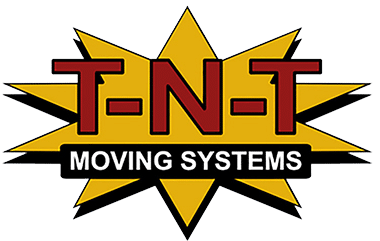Cheers to a New Year!
Resolutions come with the territory as the calendar changes to January 1st. Most of us make a resolution or vow to break bad habits (and create new ones), but not all of us see them through to the end of the year. It happens!
The good news is, we’ve compiled some suggestions so that the new year is nothing but smooth moving for you.
10 ideas to help you navigate 2019 and come out ahead!
- Exercise and physical activity are a great way to feel better, boost your health, and have fun. For most healthy adults, the Department of Health and Human Services recommends at least 150 minutes a week of moderate aerobic activity or 75 minutes a week of vigorous aerobic activity a week, or a combination of moderate and vigorous activity. Examples include running, walking, or swimming. Fit in strength training for all the major muscle groups at least twice a week by lifting free weights, using weight machines, or doing body-weight exercises.
Space out your activities throughout the week. If you want to lose weight, meet specific fitness goals or have even more benefits, you may need to increase your physical activity time.
Remember to check with your doctor before starting a new exercise program, especially if you haven’t exercised for a long time, have chronic health problems, such as heart disease, diabetes or arthritis, or you have any concerns.*
- Going on a diet is usually high on the list of resolutions, but it might be easier to make your diet healthier for starters.
These tips from the Mayo Clinic might help:*
Do you want to adopt a healthy diet but aren’t sure where to start? As you consider the parade of healthy diets in magazines and cookbooks, make sure to look for one that:
- Includes a variety of foods from the major food groups: fruits; vegetables; whole grains; low-fat dairy products and lean protein, including beans and other legumes, nuts and seeds; and healthy fats
- Provides guidelines for how much food to choose from each group
- Includes foods you can find in your local grocery store, rather than specialty or gourmet store items
- Fits your tastes, lifestyle, and budget
Also consider your health risks. For example, do you have high cholesterol or high blood pressure? If so, be sure to follow a diet that’s low in salt, saturated fat and cholesterol, and high in fruits, vegetables, whole grains and healthy fats. For personalized advice, talk with your doctor or a dietitian.
- Financial Health: We hear it every year, how much do you spend on that fancy coffee every day? Going out to eat? Entertainment? There are many good reasons (and green ones!) to heed this advice. Just cutting back on one coffee and one fast casual meal can save you up to $20 a week (that’s $1,040 annually!). Consider using coupons or loading gift cards in advance to control your spending. Entertainment values can be had without giving up fun. Many museums have a free day and there are often concerts in parks at no cost. Matinee movies are cheaper and loyalty cards can result in additional freebies. Some venues offer discounts on tickets shortly before performances or go in with friends on a series of tickets to sporting events or the theatre and just use the ones you want. Often, buying in bulk or for a season of tickets will save you money.
If you are saving up for something (like a trip or car), see if you can have your paycheck divided into two accounts for direct deposit (checking and savings) so you won’t be tempted to spend it elsewhere.
Is it time to renew your car or homeowner’s insurance? You may want to consider comparing rates with other companies to see if you are getting the best deal for your situation. This also applies to bank accounts, credit cards, loans, and cell phone contracts. Be sure to understand what you are getting for your money before you sign anything.
- Stress beaters: The new year often comes with new challenges and continuing challenges. The holidays can be stressful for many and that carries over, as well as the bills! It’s time to start preparing to file your income taxes, maybe you’re switching jobs or starting school. Fear not! There are many ways to help you cope with stress.
Meditation, mindfulness, and yoga have continued to be popular pastimes to fight stress. Classes are offered at varying fees and settings and most welcome newcomers. The equipment you will need to buy is minimal (start with a mat and wear comfy clothes) and give it a try! If money is tight, see if your local library offers any classes. Even books and videos can be helpful in reminding you that you sometimes need to a bit more centered and just breathe!
Can you unplug? The constant buzzing of your mobile device informing you of emails, news headlines and facebook posts can be too much for some. Set guidelines for your usage and stick to it. Turn off your mobile phone at night, cut off surfing the internet in the early evening, set aside a day a “technology free” day and grab a book instead.
Hobbies are great for keeping your mind and heart occupied and will help you decompress after a tough day. Do you like writing? Keep a journal going with a list of the good things that happened or start planning new adventures. Walking, photography, dancing, and team or solo sports are beneficial to controlling stress and some have the bonus of added physical health.
- Get organized: If you, like so many, lose track of your to-do list, forget to change the furnace filter, or miss an appointment, you might need a little help staying on task. No fear, there’s an app for that! Wunderlist is a cloud-based task management application that allows users to manage their tasks from a smartphone, tablet, computer, and smartwatch. Even better, the basic app is free!
This is a great tool for remembering appointments, noting when your mattress needs flipped, planning a trip, remembering an upcoming birthday or anniversary, managing a grocery list, and tracking when medications should be taken. You can share tasks with others (like picking up groceries) too. www.wunderlist.com
If technology is not your bag, try a multi-purpose planner. The key is to record appointments and reminders as quickly as possible and to remember to take a look at your daily planner. Now, if you are already a tad forgetful, that might not work, but if you choose one that’s easy to carry with a simple format, it just may work for you! Some may opt for a traditional calendar that can be placed on the front door so you can glance at what is needed to be done that day. Others keep calendars in their vehicles for the same purpose.
Another organization trick is keeping a note pad handy, in the car, or even in the bathroom! Jotting down ideas and to-dos as they pop into your mind will aid in keeping track of what you need to accomplish. A notepad with a magnet is a handy tool to hang on your refrigerator to keep track of groceries needed. If money is no object, there are refrigerators that will do this for you (with a little help from technology).
If you are forgetting to pay bills or simply stack them up to look at “later,” consider auto-payments from your banking accounts or try receiving your statements via email. This will not only cut back on paper being used, but many are more likely to check their emails on a regular basis than their snail mail.
Do you order the same amount of something month after month? Cosmetics, dog food? Consider signing up for automatic shipments from your favorite online vendors. You won’t run out of things and some companies offer a discount. If you dread going to the pharmacy and hate waiting in line, find out if your insurer has a preferred mail order service. Your prescriptions will come right to your door and they will often supply 90 days at a time, and sometimes the cost is less than getting your prescription on a monthly basis.
- Declutter: Most of us simply have more things than we need or will ever use. Consider using this year to begin the process of sorting through these items and selling or donating them. Many non-profits will be glad of your gently used household items, books, and clothes. When was the last time you watched that DVD? Think about what you really need. Set a goal: perhaps you can get rid of 10% of your possessions by year end. Maybe more.
Are you into upcycling or repurposing items (such as furniture) you already own? You’ll save money, and reusing items you already own will breathe new life into them. An old dresser could become a bath vanity, kitchen island, or serving table. Old towels can find new life as cleaning rags. Old t-shirts from those marathons you ran could be turned into a keepsake quilt, and odd cups and bowls are handy for small plants and herbs.
- Appreciate the small things: Decluttering doesn’t end with your home. “Declutter” your brain while you are at it. Take time to “smell the roses” if you will. Perhaps you can go to a park or conservatory and smell actual roses, visit the local library and peruse the magazines you’ve never seen before, pull out your favorite CD and take a listen to the band that you discovered in college. Perhaps you can visit a local gallery, museum, or historic house and just have a relaxing look at history or art.
Appreciate yourself and others. Think about all the positives in your life and acknowledge that achievements are not easy. Thank those around you. It’s easy to forget that we are all in this together and a little appreciation goes a long way. Thank-you notes, gestures, and random acts of kindness go a long way!
Make appreciation a habit and it will lesson your stress.
- Learn something new: It can be daunting to think about learning new tricks at any age, but is there something you’ve been wanting to try? Make 2019 the year to do it! Language classes (such as www.mangolanguages.com) can be found in most cities and online, and some local libraries have free online classes for those with a library card. Try a cooking class. Are you a fan of Italian food and wish you could whip up something that would make your friends envious? Now is your chance. Or, try a new food. What’s the deal with kale on pizza? Find out!
Are you considering a career change or want to enhance your current role? Classes are available for credit and non-credit at local universities and community centers. There are many online as well, such as www.edtogo.com, which is also accessible for free through many libraries. Here you can learn everything from accounting to real estate law.
- Lend a hand: Have you been wanting to volunteer but cannot seem to find the time? Make time in 2019 and you could change a life. Volunteers are needed at a wide range of non-profits, churches, and schools in all communities. From animal shelters to disaster relief, hands are needed for a variety of tasks.
If being hands-on does not work for you, some non-profits need help that you could do from home. You could help with thank-you notes, annual fund drives, make calls, coordinate events or screen pet adoptions from the comfort of home.
Even the act of donating items you no longer need or use is helpful, as are monetary donations. Many non-profits let you set up monthly gifts and will charge your credit card automatically. These gifts really add up and make a difference!
- Try something new: Make trying something new your “new habit”! Have you been wanting to try the new restaurant in town? What are you waiting for? Most menus are posted online and you can see in advance if there is something you’d like and if you can afford it. If you don’t like dining alone, try it sometime and you may find you like it. If not, try a new restaurant anyway via ordering takeout and enjoy it in the comfort of your own home.
If you do have a favorite restaurant or snack shop, try a new menu item! Ever wonder what a cherry donut tastes like? Find out in 2019. While you’re feeling bold and potentially full on a sugar rush, visit some of the stores you’ve been meaning to drop into. Boutiques and specialty stores can seem intimidating, but they will welcome those who are even just browsing and you’ll likely be supporting a local business owner with your purchase or positive word of mouth.
Does going to a symphony sound painful? You might be surprised! Give it a try by going to a concert in a park or find a performance that incorporates something you are more familiar with. Some symphonies show films (from Star Wars or the Harry Potter series) along with the score from the film.
Don’t wait for your bucket list. If London, Kentucky or London, England is on your list of places to visit, why wait? Create a budget and make 2019 the year you plan the trip or purchase of your dreams!
*www.mayoclinic.org




